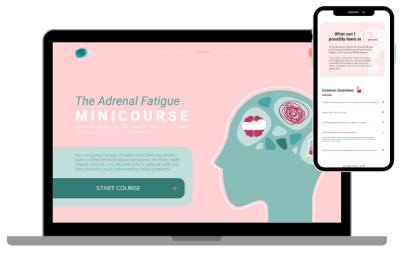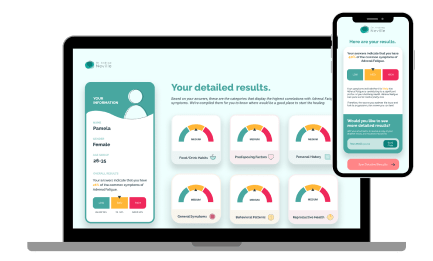Vitamin C (ascorbic acid) is more than the vitamin in citrus fruits needed to prevent scurvy. Adequate levels are essential to a good quality of life. Among its many incredibly important benefits of vitamin C, it is mainly essential for our adrenal function and our body’s ability to adequately handle stress of all kinds.
Adequate intake of vitamin C is crucial to healing Adrenal Fatigue, and it is part of almost every one of my patient’s treatment plans.
Why We Are Chronically Deficient in Vitamin C
The sicker we are, the more ascorbic acid we need. Protecting the body, the brain, and all the body’s cells from the ravages of stress is one of the main benefits of vitamin C.
Humans are one of the only mammals that cannot produce vitamin C on their own. For instance, when other mammals are under stress—any stress—they increase production of ascorbic acid, exponentially.
Vitamin C is not a nutrient that we were made to source from food. Instead, our bodies were supposed to manufacture this vital molecule on demand. But somewhere back in time, humans lost the ability to produce vitamin C within our bodies. Because of this, we have been dependent on consuming enough from food ever since. However, given ourfast-paced, toxic, stressful world, we are chronically deficient.
10 Amazing Benefits of Vitamin C
#1 The primary antioxidant in the body, vitamin C is the true King of Antioxidants.
#2 It protects from stress, maintaining physiologic homeostasis.
#3 Vitamin C acts as a catalyst to hundreds of biochemical reactions, greasing the wheels of our biochemical machinery.
#4 By counteracting and neutralizing reactions to toxins and poisons, it decreases toxicity in the body.
#5 It acts as an antibacterial and antiviral.
#6 Vitamin C is our primary histamine scavenger (allergy control).
#7 It supports production of adrenal (stress) hormones.
#8 Without adequate vitamin C, the collagen in your body breaks down and doesn’t repair (every cell in your body is made of collagen).
#9 Cardiovascular strength and integrity improve with proper daily dosing of vitamin C.
#10 Vitamin C helps mental and neurotransmitter status.

How Much C Should Be In Your Daily Dose?
Researchers have only studied rats for optimal levels of vitamin C. From this data, we can extrapolate an average intake of 2000-4000 mg of vitamin C for the average 150 lb person. But this “optimal” dose would assume a life-long intake that is adequate, which is not the case.
Humans can only absorb about 500 mg of vitamin C at any one time, depending on our needs. (We may be able to absorb this amount of vitamin C every 15 minutes.) The unused vitamin C is excreted through the bowel.
There is a limit to what your body will tolerate; at a certain level of intake, the excess vitamin C in the bowel will attract too much water and cause loosened stools. If bowel intolerance happens, just back it down to your last tolerated dosage.
Vitamin C is among the staples in a healing plan for Adrenal Fatigue. When the stress response system in chronically activated, our bodies need the benefits of vitamin C the most!
Here are some more articles on how to heal Adrenal Fatigue.





















